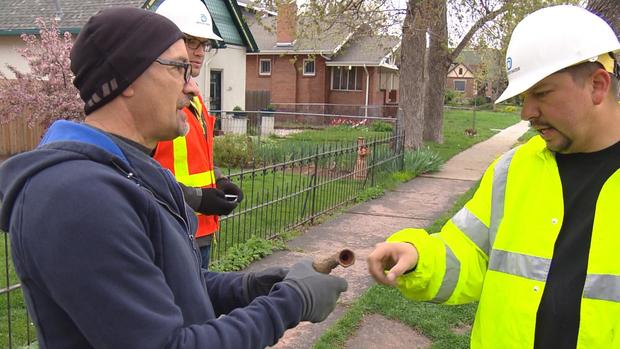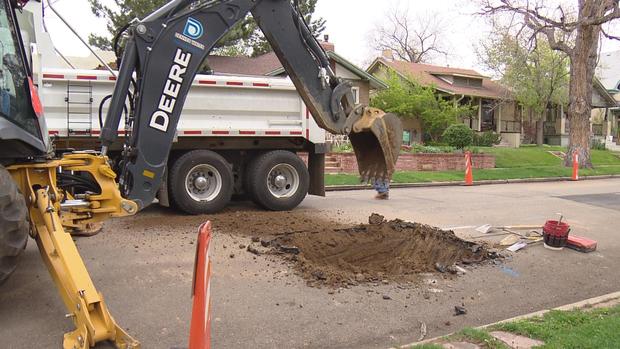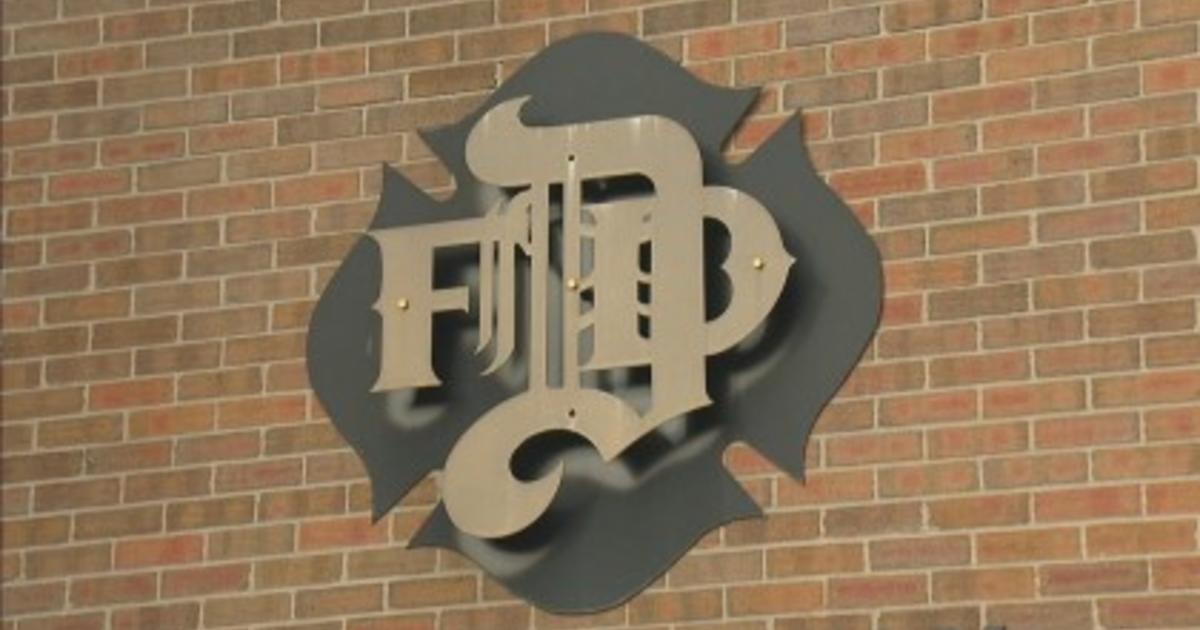Denver Water Steps Up Lead Pipe Removal
By Brian Maass
DENVER (CBS4) - Reacting to the water crisis in Flint, Michigan, Denver Water is ramping up efforts to replace lead water lines. It follows the Flint controversy, where lead levels spiked following a series of operational and water supply changes.
"There is no safe level of lead in drinking water. The EPA says the recommended level is zero," said Denver Water spokesperson Melissa Elliott.
She emphasized that lead is not present in the mountain streams and reservoirs of Colorado, nor is lead present when water leaves Denver Water's treatment plants. However, thousands of older Denver homes have lead service lines, which can leach small amounts of lead into residents' water.
Lead in water can affect the central nervous system, slow growth in children, cause hearing problems and is a known carcinogen.
Denver Water says every year it collects about 200 samples from older Denver-area homes every year and invariably finds homes with elevated lead levels in the water. Typically, homes built before 1950 were constructed with lead water lines.
Nobody really knows how many homes in the Denver metro area have lead service lines or where they are. But beginning in March, Denver Water began taking a more aggressive, proactive approach to addressing the problem of lead service lines.
Prior to March, if Denver Water discovered lead service lines through a leak or construction, the agency would replace the lead line that went from the water main to the customer's meter. The agency would then recommend the property owner replace the rest of the lead service line which runs from the meter into the home. That replacement could cost anywhere from $3,000 to $10,000.
Now though, Denver Water is replacing the lead service line from the meter to the home at no cost to the property owner when the utility discovers lead pipes during construction projects or leaks.
"We decided through an abundance of caution with our customers being very engaged in the issue of lead, and our policies evolving, that we would go ahead and do a full lead service line replacement when they encountered them during construction," said Elliott.
That's what CBS4 came across recently as Denver Water excavated and replaced lead lines to homes in a west Denver neighborhood. The agency was replacing the lead line all the way into the home of Brandeis Sperandeo, saving him thousands of dollars.
"Of course I've had concerns thinking that there is lead running through a system and into ancient galvanized steel," said the homeowner.
He said his family of five was "tickled pink" that Denver Water was picking up the cost of replacing the service line into his home, a job that would cost thousands of dollars. The new lines will be copper.
Johnny Roybal, a water distribution foreman for Denver Water working in that part of the city, told CBS4 "Denver Water is doing it as a courtesy to get the lead out."
He said that when his crew determines there are lead lines running into a home, they provide information to the homeowner about steps to take, including running water from the tap for three minutes to flush the system before drinking.
Denver Water says in 2015 it replaced approximately 600 lead service lines and anticipates at least the same number in 2016.
"The Flint situation lays bare this simple fact: Our communities will be safer in the long run with no lead service lines in the ground. We're not waiting for the new regulations," Denver Water CEO Jim Lochhead said.
The American Water Works Association estimates there are 6.1 million lead service lines still in use in the U.S. and removal would cost an estimated $30 billion.
"As a community and as a broader society, we need to have a serious discussion on how we get the lead out," said Lochhead.
Additional Resources
You can request Denver Water test your home's water for lead by calling 303-893-2444.
Or you can use this online form -- denverwater.org/.../lead-test-request/ -- to get a sampling kit to collect the water.
The sampling kit and the water test are free. The test can determine whether the source of lead is the customer's service line, their home plumbing or their faucets.
You can also get your water tested through information provided by the Colorado Department of Public Health and Environment: colorado.gov/pacific/cdphe/water-testing
CBS4 Investigator Brian Maass has been with the station more than 30 years uncovering waste, fraud and corruption. Follow him on Twitter @Briancbs4.





